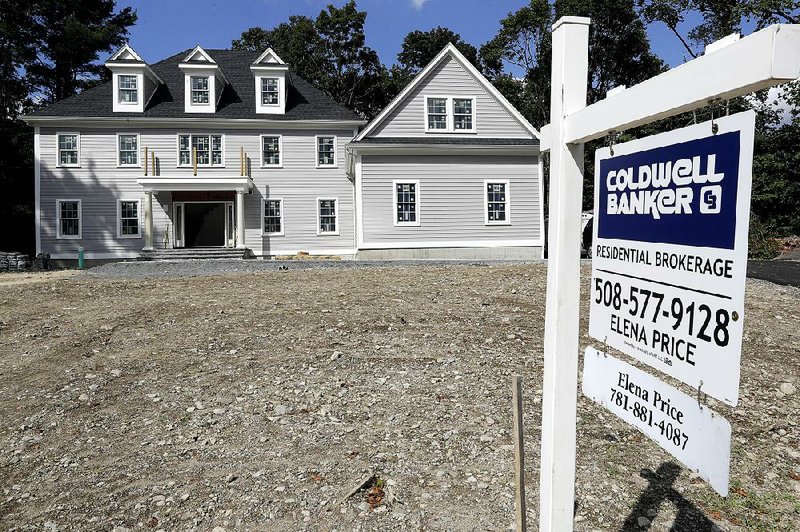WASHINGTON -- After sinking to their lowest levels in nearly three years, mortgage rates popped back up this week but remained at historically low levels.
Mortgage buyer Freddie Mac said Thursday that the rate on the 30-year, fixed-rate mortgage increased to 3.56% from 3.49% last week. Average rates on the benchmark loan have remained below 3.6% for four-straight weeks -- the first time that's happened since the fourth quarter of 2016.
A year ago, the 30-year rate stood at 4.6%.
The average rate for 15-year, fixed-rate home loans rose to 3.09% from 3% last week. It was 4.06% a year ago. The five-year adjustable rate average rose to 3.36% with an average 0.3 point. It was 3.3% a week ago and 3.93% a year ago.
Mortgage rates fell sharply over the summer as a slowing global economy and tensions from the trade war between the U.S. and China have caused interest rates on government bonds to tumble. The yields on government bonds, especially the 10-year Treasury note, influence long-term mortgage rates.
The yield on the 10-year Treasury note, which had fallen to 1.47% earlier this month, bounced back this week, rising to 1.75% on Wednesday.
The trade concerns have appeared to ease in recent days and sentiment has brightened in global stock markets. Interest rates on government bonds have ticked up. China said Wednesday that it will exempt U.S. industrial grease and some other imports from tariff increases, though it kept in place penalties on soybeans and other major U.S. exports ahead of negotiations next month.
As a gesture of "goodwill," President Donald Trump said on Twitter that the U.S. agreed to a two-week delay in a planned increase in tariffs on some Chinese imports. The moves could indicate that both sides are settling in for an extended conflict even as they prepare for talks in Washington aimed at ending the dispute that threatens global economic growth.
Investors continue to expect the Federal Reserve will cut interest rates at its policymaking meeting next week in another bid by the central bank to help maintain U.S. economic growth. The Federal Reserve cut its benchmark interest rate in July by a quarter point, its first decrease in a decade.
The Fed doesn't set mortgage rates, but its decisions influence them.
Freddie Mac surveys lenders across the country between Monday and Wednesday each week to compile its mortgage rate figures.
The average doesn't include extra fees, known as points, which most borrowers must pay to get the lowest rates.
The average fee on 30-year fixed-rate mortgages was unchanged this week at 0.5 point.
The average fee for the 15-year mortgage fell to 0.5 point from 0.6 point.
The average rate for five-year adjustable-rate mortgages rose to 3.36% from 3.30% last week. The fee slipped to 0.3 point from 0.4 point.
"A heavy dose of generally strong economic data also contributed to a rebound in mortgage rates, particularly better-than-expected wage growth figures and an encouraging read on the services sector," said Matthew Speakman, a Zillow economist. "The strength of the consumer continues to propel the economy, so all eyes will be on the August retail sales report [today]."
"Mortgage rates rose this week riding a wave of investor sell-off in the Treasury bond market, fueled by concerns over the German -- and by extension -- the broader European economy," said George Ratiu, senior economist at Realtor.com. "Moreover, equity markets have already priced in an expected rate cut from the Federal Reserve at its next meeting."
Bankrate.com, which puts out a weekly mortgage rate trend index, found that nearly two-thirds of the experts it surveyed say rates will move higher in the coming week.
Meanwhile, mortgage applications rebounded slightly on the strength of purchasers. According to the latest data from the Mortgage Bankers Association, the market composite index -- a measure of total loan application volume -- increased 2% from a week earlier. The refinance index was flat at 0.4%, while the purchase index rose 5%.
The refinance share of mortgage activity accounted for 60% of all applications.
Information for this article was contributed by staff members of The Associated Press and by Kathy Orton of The Washington Post.
Business on 09/13/2019

